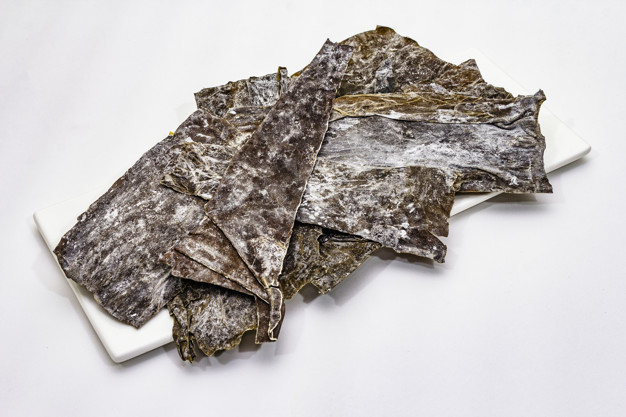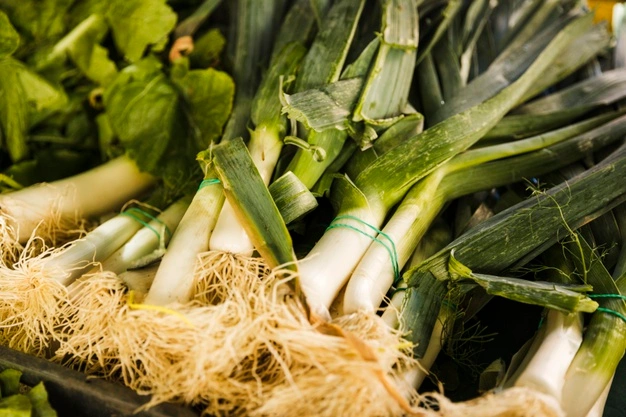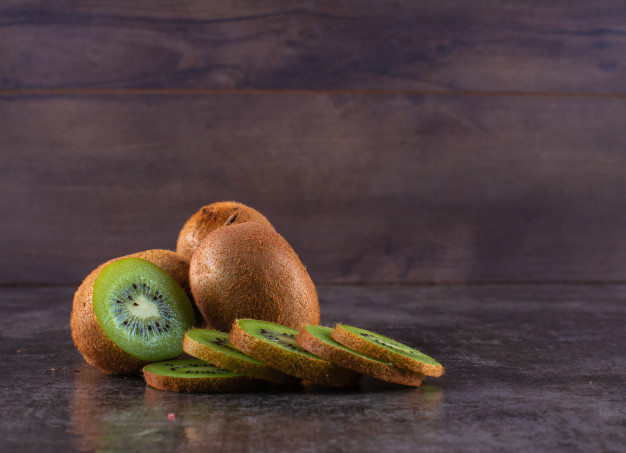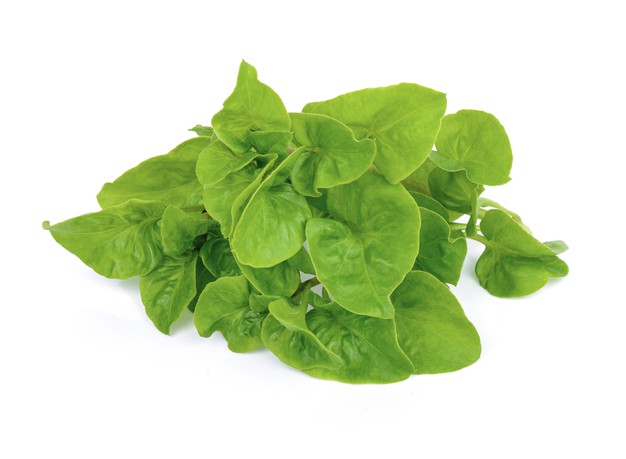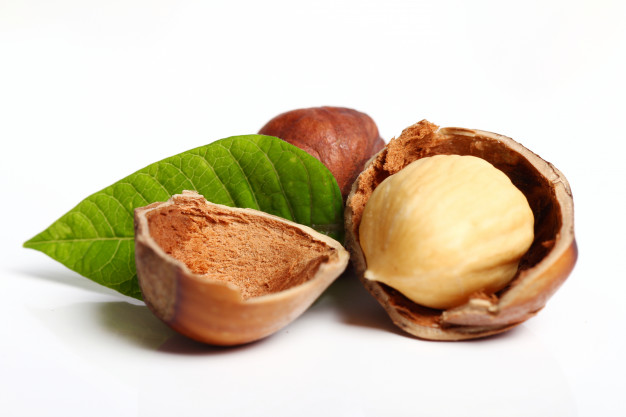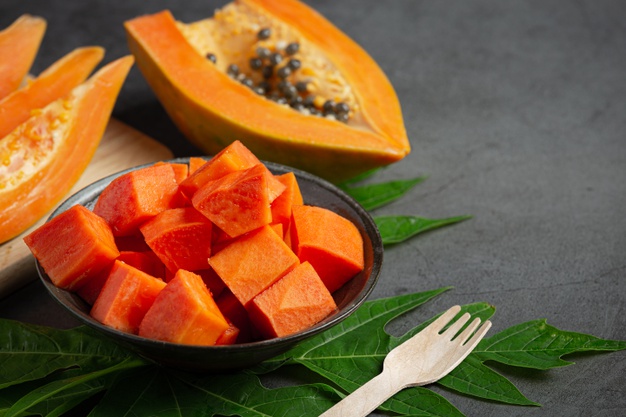Kombu is a nutritious sea vegetable belongs to a group of brown algae named laminariaceae. It is loaded with numerous health promoting nutrients and offers various health benefits.
General information regarding Kombu
- It is considered as an important edible kelp, which is generally found in sea forests
- Kombu is associated with absorbing variety of nutrients, which is responsible for making it a nutritious as well as health promoting supper food
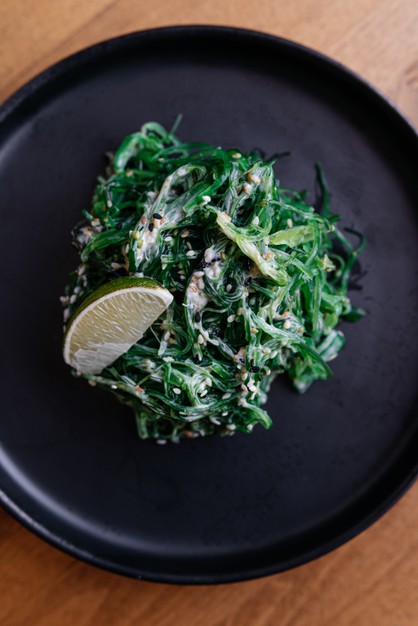
Nutritional profile
Carbohydrates
- It contains very less amount of carbohydrate thus it is considered as a low glycemic food. Being a low glycemic food it can be easily incorporated in the diet of a diabetic patient
- It also contains fucoidan, which is a polysaccharide, greatly utilized by the body for energy purposes. It is also accountable for exerting antioxidant activity, anti-carcinogenic activity, antitumor activity, immunoregulatory activity and anti-inflammatory activity
- It contains desirable amount of fibre as well, which plays significant role in reducing the prevalence of obesity, cardiovascular disease, diabetes, hepatic disorders and hypercholesterolemia
Proteins
- It contains various important amino acids thus it is considered as a good source of plant protein
- Its consumption is related with improving the growth and development of cells as well as tissues and it also helps in cellular repairing by promoting cellular re-synthesis and tissue re-synthesis thus it helps in wound healing too
- Its protein content helps to boost up muscular growth as well

Fats
- It contains negligible amount of fat thus it is known as low fat food and it does not provide enough calories in its oxidation hence it can be a part of weight reducing diet
- It contains too some extent of omega-3-fatty acid, docosahexaenoic acid and eicosapentaenoic acid, all of which are essentially required by the body for the development of nervous system as well as for promoting cardiac health
Vitamins
- It is packed with various important vitamins like Vitamin A, Vitamin C, Vitamin E, Vitamin K and B vitamins
- Consumption of kombu is considered as an important option for preventing various vitamin deficiency disorders
Minerals
- It contains numerous minerals as well, which play several important biochemical roles in body
- It is significantly rich in calcium, phosphorus, magnesium, manganese, iron, zinc and iodine
Role of Kombu on health and disease prevention
Role on digestive health

- It plays significant role in promoting digestive health
- Fibre content of kombu helps in digestion
- It contains enzymes too, which are also responsible for improving digestive ability of the body
- Amino acid components of kombu are responsible for breaking down heavy starches found in food stuffs especially in beans, which make them easily digestible
- Consumption of kombu is also associated with minimizing intestinal gas production thus individuals who suffer from flatulence or bloated stomach should include kombu in their daily diet
- Fibre component of kombu is also related with promoting the growth of intestinal beneficial microbes hence improves gut health
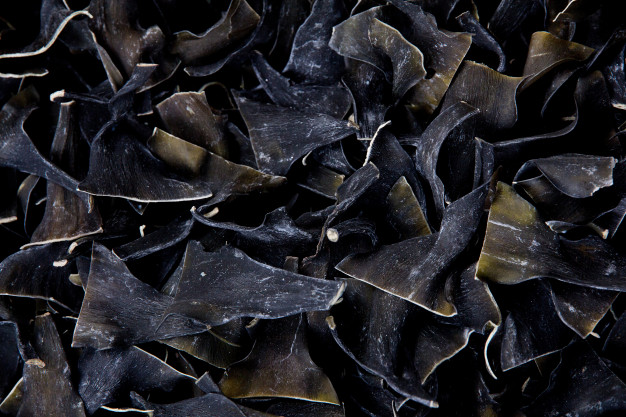
Hypoglycemic effect
- It plays imperative role in regulating blood sugar concentration thus its consumption is very effective for diabetic patients or for those persons who are at risk condition
- It is associated with preventing insulin resistance thus helps to reduce blood sugar level
- Its fibre content is also responsible for reducing blood sugar concentration as it helps to decrease postprandial glucose spike by decreasing the rate of glucose absorption from intestinal epithelial cells
Anti-carcinogenic effect
- It helps to reduce the prevalence of cancer by offering cancer preventing benefits
- It has seen that oxidative stress and inflammation are the risk factors of carcinoma and as kombu is related with providing antioxidant as well as anti-inflammatory activities thus it is considered as one of the most important cancer fighting foods
- It also exerts anti-tumor effects
- It is very effective for reducing the prevalence of breast cancer and liver cancer

Antioxidant effect
- It is loaded with numerous important nutrients, which exhibit antioxidant activities
- It is significantly rich in fucoxanthin, which is a type of carotenoid that plays imperative role in reducing oxidative stress of the body
- Its consumption is thought to be very effective for protecting the body from the harmful consequences of free radicals and reactive oxygen species thus helps to decrease the susceptibility of developing chronic diseases like obesity, cardiovascular disease, diabetes, MS etc
Role on thyroid gland
- Iodine is essentially required for proper thyroid functioning and consumption of kombu is very much effective in order to achieve properly functioning thyroid as it is considered as the richest source of iodine among all sea weeds
- It has seen that kombu has the ability to soak up natural salts present in ocean, which ultimately makes it a concentrated source of iodine
- Iodine helps in the synthesis of thyroid hormones and also accountable for keeping the gland functioning thus its consumption is very effective for decreasing the risk of developing hypothyroidism and other related thyroid disorders

Role on preventing rheumatoid arthritis
- Kombu is composed of a sulfated polysaccharide named fucoidan (mentioned above) that plays significant role in preventing arthritis as it is responsible for impairing the functions of arthritis causing inflamed cells
- It is also associated with preventing the survival of arthritis causing inflamed cells thus it is thought to be an effective remedial measure for arthritis
- It has seen that consumption of kombu significantly improves the symptoms of rheumatoid arthritis
Role on preventing anemia
- Iron plays important role in synthesizing hemoglobin, which is associated with carrying oxygen to the body through blood. Iron helps to maintain cellular respiration and also helps to promote the health of cells, skin, nail and epithelial tissues
- Deficiency of iron is responsible for developing anemia, which is manifested by deficient RBC as well as hemoglobin in blood, shortness in breath due to lack of oxygen supply, weakness, general fatigue, poor working performance due to hindered cellular respiration. All of these complications can be easily prevented if the diet contains sufficient amount of iron and being a good source of iron kombu is considered as an effective preventive measure for anemia
Other health benefits
- Its antioxidant as well as lipid lowering activity is accountable for reducing the risk of developing cardiovascular disease
- It helps to promote the growth of skeletal system
- It also helps to prevent obesity
- It helps to reduce the risk of forming gall stones
- Its consumption is also very effective for improving the immunological responses of the body

Culinary uses
- It has been extensively used for preparing dashi, which is a popular Japanese soup stock
- It can also be used as a flavouring agent
- It can be consumed with beans
- It can also consumed with brown rice
- Soaked or chopped kombu can be added with any soups or stews for increasing its nutritive value
General consideration of using Kombu
- It is better to store it in airtight condition for preventing its contamination as well as spoilage
- Keeping it away from sunlight and moisture increases its self life
Risk factors
- Pregnant women should consult with doctors before consuming any seaweeds as they contain heavy metals that may interfere with the maternal health
- Too much consumption of kombu is not healthy as it may develop various health hazards like diarrhoea, abdominal pain, fever, tooth soreness etc
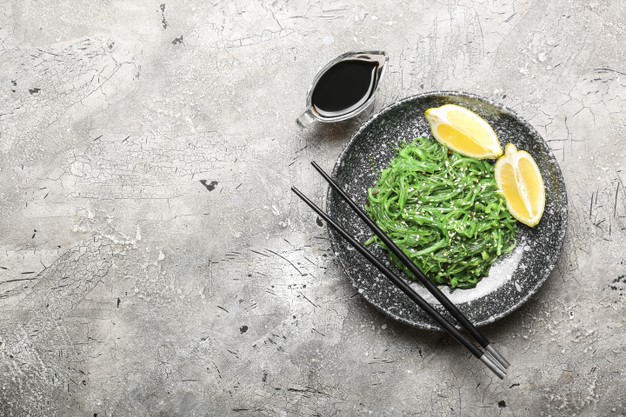

Source:
Gudisa, I., 2019. Algal Multipurpose Benefit.
Hashimoto, T., Ozaki, Y., Mizuno, M., Yoshida, M., Nishitani, Y., Azuma, T., Komoto, A., Maoka, T., Tanino, Y. and Kanazawa, K., 2012. Pharmacokinetics of fucoxanthinol in human plasma after the oral administration of kombu extract. British Journal of Nutrition, 107(11), pp.1566-1569.
Mikami, K. and Hosokawa, M., 2013. Biosynthetic pathway and health benefits of fucoxanthin, an algae-specific xanthophyll in brown seaweeds. International journal of molecular sciences, 14(7), pp.13763-13781.
Nishimura, M., Sugawara, M., Kudo, M., Kinoshita, Y., Yoshino, H. and Nishihira, J., 2019. Effects of daily intake of Harudori-kombu: A randomized, double-blind, placebo-controlled, parallel-group study. Functional Foods in Health and Disease, 9(4), pp.205-223.
Nishiumi, S., Izumi, Y., Kobayashi, T. and Yoshida, M., 2020. Possible Involvement of Lipids in the Effectiveness of Kombu in Individuals with Abnormally High Serum Triglyceride Levels. Journal of nutritional science and vitaminology, 66(2), pp.185-190.
Rajapakse, N. and Kim, S.K., 2011. Nutritional and digestive health benefits of seaweed. Advances in food and nutrition research, 64, pp.17-28.
